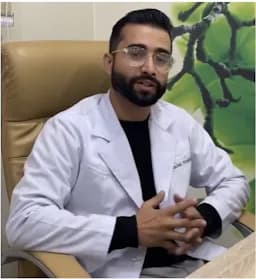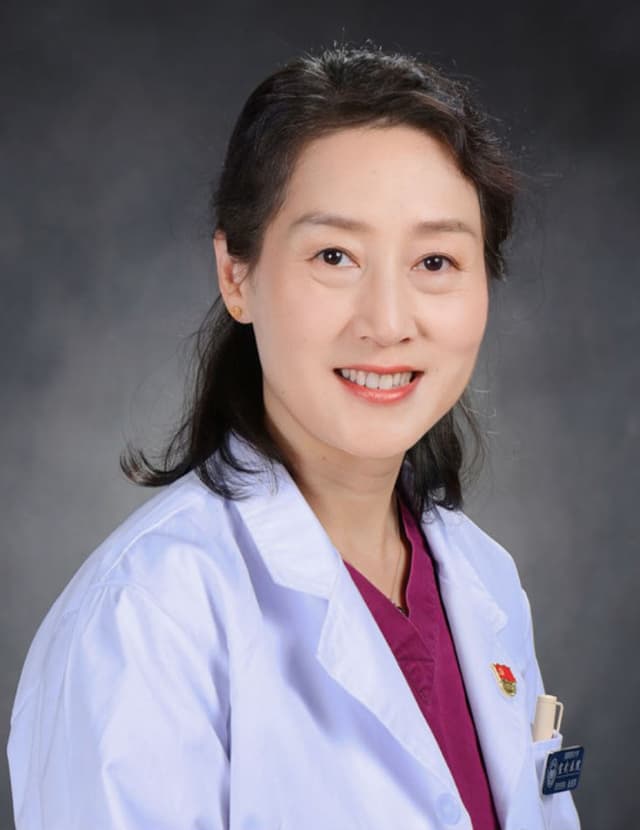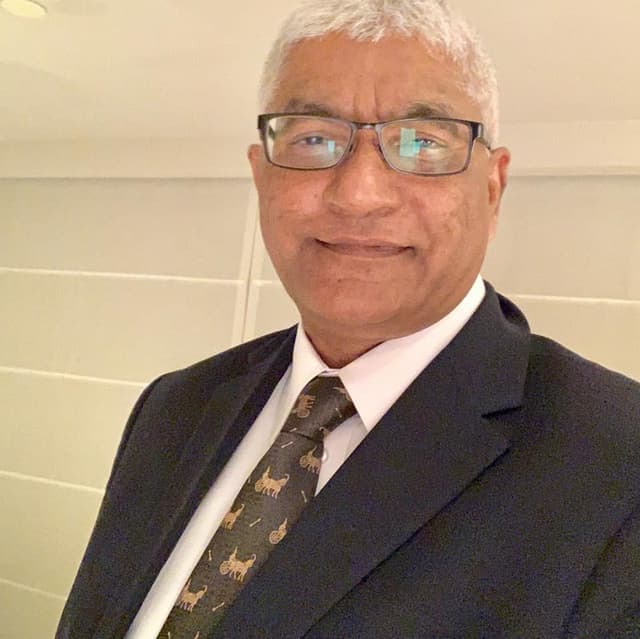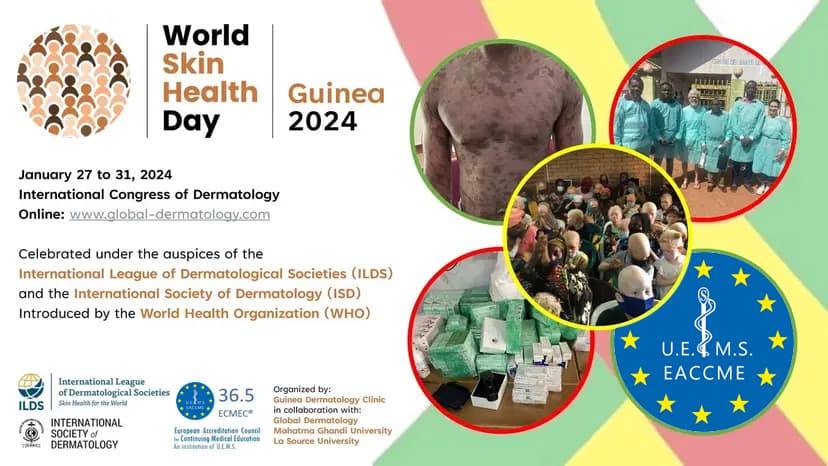World Skin Health Day | Guinea 2024
Guinea | Conakry
2024-01-27
Organized by WSHD | Guinea - 2024
09:15 - 09:35
Welcome speech
Fodé Mohamed PhD
09:35 - 09:45

Introduction
Dr. José-Antonio Ruiz-Postigo qualified from the Medical School of Autonomous University of
Barcelona, Catalonia, Spain.
He is a post-graduate holder in Tropical Medicine and International Health, and he further pursued
his interest in research by completing his PhD at the University of Barcelona. His thesis was on the
epidemiology and control of human African trypanosomiasis in the municipality of Kissama, Angola.
He has been working on Neglected Tropical Diseases (NTDs) for 28 years, mainly in sub-Saharan
Africa and the WHO Eastern Mediterranean Region. Since 2013, he is based at WHO headquarters
where he led the World Leishmaniasis Control Programme for the period 2016-2019.
In 2020 he joined the newly created team on Skin Neglected Tropical Diseases at WHO
headquarters. Since then, his main work has been related to the creation of the WHO mobile app on
Skin NTDs, which includes a section on artificial intelligence, alongside the establishment of a
channel for online courses at OpenWHO and the implementation of a global web-based surveillance
at WHO for data collection, analysis and dissemination on leishmaniasis and skin NTDs.
09:45 - 09:54

Introduction to the René Touraine Foundation
Le professeur René Touraine est à l’origine de la recherche clinique et thérapeutique en dermatologie en France. Un de ses élèves, le Professeur Louis Dubertret, crée en 1991 la fondation portant son nom.
La FRT est une Fondation reconnue d’utilité publique et une organisation internationale à but non lucratif.
Son objectif est de soutenir le progrès thérapeutique en dermatologie pour aider les patients à accéder à des soins de qualité dans leur pays.
La Fondation adopte une approche multidisciplinaire et réunit tant sur le terrain qu’au niveau international des chercheurs, des dermatologues, des associations de patients, des industries pharmaceutiques et cosmétiques et des autorités sanitaires.
Session 1 : Acne and Rosacea : Diagnostics and therapeutics / Acné et Rosacea : Diagnostics et Thérapeutiques
10:00 - 10:20

Le microbiome cutanée : Gardien de la bonne santé de notre peau / The skin microbiome: Guardian of the good health of our skin
National Academy of Medicine Division: Medicine and medical specialties (France)
Total publications (since 1977): 918 h factor: 66. SCI (Without self citations): 31566. SIGAPS score: 8954
UNIVERSITY TITLES
2016 President of the CNU – Dermatology – 50th section – 3rd subsection (Nantes, France)
2013 Elected member of the National Council of Universities – Dermatology – 50 th section – 3 rd sub-section
2011 University Professor Exceptional class 2nd level
HOSPITAL TITLES AND FUNCTIONS
Since 2014 Head of Department of Dermato-Cancerology
Since 1993 Founder and Director of the Cellular and Gene Therapy Unit (UTCG) of the University Hospital of Nantes
HONORABLE DISTINCTIONS
2015 Appointment to the rank of Knight in the Order of Academic Palms
2013 2013 International League of Dermatological Societies (ILDS) Award
2005 Prize for Victories in medicine, specialty “Cancerology”
ACADEMIC RESPONSIBILITIES
Since 2020 Deputy Vice-President for Scientific and Technical Culture at the University of Nantes
Since 2012 Director of group 2 “Translational and clinical research on melanoma” within the
Cancer Research Center (CRCINA U1232) in Nantes
2011 – 2020 Vice-Dean for Research of the Faculty of Medicine of Nantes
Since 2005 Founder and Coordinator of the Biotherapy Module of the Clinical Investigation Center of
Biotherapy INSERM CBT0503
OTHER DUTIES AND RESPONSIBILITIES
2021 Sponsor of the association ELLES à la Santé
2018 Elected president of the committee in charge of the scientific program of the annual congress of the Academy: European Academy of Dermatology and Venereology (European Academy of Dermatology and Venereology) (EADV)
2015 Elected Board Member and Treasurer of the International League of Dermatological Societies (ILDS) which coordinates Dermatology societies on a global level and ensures relations with the WHO for skin conditions
ACADEMIC SOCIETIES
2019 Founding Member and Member of the Board of Directors of the French Society of Cancer Immunotherapy (FITC)
2016 Chair of the scientific committee in charge of the scientific program of the EADV
2014 Founding Member of the “Melanoma Word Society” (MWS)
2015 Treasurer of the ILDS 2014 Member of the scientific committee of the European Society of Dermatology (EADV)
2010 -2012 President of the College of Teachers of Dermatology of France (CEDEF)
2004 – 2006 President of the French Society of Dermatology (SFD).
Vice-President of the French Society of Dermatology: 2003
Member of the Board of Directors: 2002
2002 – 2005 Founding member of the French Society of Cellular and Gene Therapy
2009 Board member of the “Skin Cancer Foundation”
2005 Foreign member of the Canadian Society of Dermatology
1994 Full member of the “International Society for Cutaneous Lymphomas” (ISCL). Member of the Office
from 2000 to 2010
1990 Full Member of the American Academy of Dermatology (AAD)
1987 Full Member of the “European Society for Dermatological Research” (ESDR)
1982 Founding member of the French Society for Research in Dermatology (SRD).
Board member: 1989 to 1992
CONGRESS ORGANIZATION
European Congresses: 2011 Organizer and Session Chair of the 7th European Association of Dermatology Oncology – Nantes – (EADO)
10:20 - 10:40

International expert consensus recommendations for use of dermo- cosmetics in acne
Delphine KEROB
10:40 - 11:00

Acné et qualité de vie des adolescents à peau pigmentée en milieu scolaire à Abidjan, Côte d'Ivoire (Afrique subsaharienne) / Acne and quality of life in adolescents with pigmented skin in a school environment in Abidjan, Ivory Coast (Sub- Saharan Africa)
TITRES ET DIPLOMES
-Maître de conférences agrégé CAMES en Dermatologie-vénérologie, UFR des Sciences Médicales de l’université Félix Houphouët Boigny d’Abidjan.
-Maîtrise professionnalisée de Santé Publique à l’UFR Sciences Pharmaceutiques et biologiques de l’université Félix Houphouët Boigny
-Diplôme inter universitaire (DIU) sur les maladies systémiques à expression cutanée de l’Université Pierre Marie Curie de Paris.
-Diplôme inter universitaire (DIU) de dermatologie esthétique, lasers et cosmétologie de l’université de Bordeaux.
-CES (Certificat d’études spéciales) de Dermatologie Vénérologie de l’UFR Sciences médicales d’Abidjan, université Félix Houphouët Boigny
FONCTIONS
2023 : -Chef unité A d’hospitalisation du service de Dermatologie du CHU de Treichville
-Responsable des stages du Diplôme d’études spéciales en dermatologie Vénérologie de
l’UFR Sciences médicales d’Abidjan, université Félix Houphouët Boigny
Depuis 2010 : -Praticien hospitalier au service de Dermatologie Vénérologie du CHU de
Treichville Abidjan
-Ancien Interne des hôpitaux d’Abidjan
-Enseignant chercheur à l’UFR Sciences médicales d’Abidjan, université Félix Houphouët
Boigny
SOCIETES SAVANTES, CULTURELLES OU SCIENTIFIQUES
-Membre de la Société Ivoirienne de Dermatologie-Vénérologie (SIDV)
-Membre de l’Association des Dermatologues Francophones (ADF)
-Membre de la Société de Dermatologie D’Afrique Francophone (SODAF)
-Membre de la Sociéte Française de Dermatologie (SFD)
Date :14/12/2023
Certifié sincère
Signature :
11:00 - 11:20

Long-term treatment for acne
Dr Peter Ch'ng is a consultant dermatologist and skin specialist who always put his patients' safety and wellbeing as his top priority. As an esteemed dermatologist and skin specialist, Dr Peter prides himself in being able to treat acne patients of all types, with a 100% acne treatment success record. He is Vice President for Malaysian Leprosy Relief Association Pahang, Member of Dystrophic Epidermolysis Bullosa Research Association (DEBRA) International, EXCO Member of Malaysia Dermatology Association and Member of Cochrane Skin Group
11:20 - 11:40

Unveiling Current Insights on Acne Vulgaris and Rosacea
Year Education Program
1993 Medical Doctor, Faculty of Medicine Universitas Sumatera Utara
2001 Specialist of Dermatology Venereology and Aesthetic, Faculty of Medicine Universitas Sumatera Utara
2006 Advance Dermatology, National Skin Centre, Singapore
2008 Consultant of Cosmetic and Aesthetic Dermatology, Kolegium Dermatologi dan Venereologi (KDVI)/ Indonesian Collegium of Dermatology and Venereology
2012 Doctorate degree in Medical Sciences, Faculty of Medicine Universitas Sumatera Utara
WORK EXPERIENCES
YEAR DESCRIPTION
2017 – Now Chief of Dermatology Cosmetic and Aesthetic Division, Departement of Dermatology Cosmetic and Aesthetic, Faculty of Medicine Universitas Sumatera Utara, Universitas Sumatera Utara Hospital Medan, H. Adam Malik General Hospital Medan
2019 – Now Member of the Board of Professors of Universitas Sumatera Utara
2017 – Now Member of the Advisory Council of Faculty of Medicine Universitas Sumatera Utara
2015 – Now Medical Sciences Doctorate Program Lecturer of Faculty of Medicine Universitas Sumatera Utara Medan
1997 – Now Lecturer of Faculty of Medicine USU Medan
2017 – 2021 Head of Department of Dermatology and Venereology, Faculty of Medicine Universitas Sumatera Utara
2017 – 2021 Head of Medical Staff Group of Dermatology and Venereology, Faculty of Medicine Universitas Sumatera Utara, Universitas Sumatera Utara Hospital Medan
2004 - 2007 Secretary of Department of Dermatology and Venereology Faculty of Medicine USU, Medical Functional Staff of RSUP H. Adam Malik
ORGANIZATION HISTORY
YEAR ORGANIZATIONS AND POSITIONS
2021 - Now Executive Board of Kolegium Dermatologi dan Venereologi Indonesia (KDVI)/ Indonesian Collegium of Dermatology and Venereology
2021 - Now Advisory Council of Ikatan Dokter Indonesia (IDI)/Indonesian Medical Association in North Sumatra Region
2021 – Now Advisory Council of Perhimpunan Kedokteran Wisata Kesehatan Indonesia (PERKEDWI)/ Indonesian Health Tourism Medical Association in North Sumatra Region.
2022 - Now Council of Expert of Perkumpulan Disiplin Herbal Medik Indonesia (PDHMI)/ Indonesian Medical Herbal Discipline Association in Sumatra
2022 - Now Advisory Council of Perhimpunan Dokter Spesialis Kulit dan Kelamin Indonesia (PERDOSKI)/ Indonesian Society of Dermatology and Venereology in Medan
2021 - Now Advisory Council of Kelompok Studi Dermatologi Sosial Indonesia/ Indonesian Social Dermatology Study Group
2017 – Now Head of Medical Education and Training, Ikatan Dokter Indonesia (IDI)/ Indonesian Medical Association in Medan
1998 - Now Member of PERDOSKI Medan
Until now Member of IDI Medan
Until now Member of Kelompok Studi Dermatologi Kosmetik Indonesia/ Indonesian Cosmetic Dermatology Study Group
Until now Member of Kelompok Studi Dermatologi Anak Indonesia/ Indonesian Pediatric Dermatology Study Group
Until now Member of Kelompok Studi LASER Indonesia/ Indonesian LASER Study Group
Until now Member of Kelompok Studi Geriatri Indonesia/ Indonesian Geriartry Study Group
Until Now Member of Kelompok Studi Dermatologi Sosial Indonesia/ Indonesian Social Dermatology Study Group
PUBLICATIONS
N° PUBLICATIONS
1. Assessing Acne Severity: Teledermatology Versus Face to Face Consultations During the COVID-19 Pandemic. In; J Clin Aesthet Dermatol. 2023;16(1):30-34. https://jcadonline.com/acne-severity-teledermatology-covid-pandemic/
2. The Relationship of The Use of Mask with The Event of Maskne on USU Hospital Healthcare Workers During The COVID-19 Pandemic. In; Bali Med J, 2023, Volume 12, Number 2, 1171 – 1174. Doi: https://doi.org/10.15562/bmj.v12i2.3967 e-ISSN: 2302-2914
3. Analysis of Risk Factors Associated with Maskne in the Era of the COVID-19 Pandemic. In; Sumatera Medical Journal (SUMEJ)., Vol. 6, N0.1, 2023. Doi: https://doi.org/10.32734/sumej.v6i1.8015
4. Correlation between Sebum Level and Follicular Fluoresence in Acne Vulgaris Patients. In; Open Acces Maced J Med Sci, E-ISSN: 1857-9655. 2022 April 12; 10(B): 1202-1205. E-ISSN: 1857-9655. Doi: https://doi.org/10.3889/oamjms.2022.9445
5. Bacterial sensitivity pattern to antibiotics in acne vulgaris at Universitas Sumatera Utara Hospital Medan, Indonesia in 2019. In; Journal of General Procedural Dermatology and Venereology Indonesia, 2022; 6(1). Doi: http://dx.doi.org/10.19100/jdvi.v6i1.254
6. A Case Report The Evaluation of Malondialdehyde Level on Acne Vulgaris Treatment. In; Sumatera Medical Journal (SUMEJ)., Vol.5, No.2, 2022. Doi: https://doi.org/10.32734/sumej.v5i2.6633
7. Correlation Between Stress Scale and Serum Substance P Level in Acne Vulgaris. In; International Journal of General Medicine, 2021 Mar: (14)681-686, doi: https://doi.org/10.2147/IJGM.S294509
8. Cell Phone Acne: New Acne Clinical Features in the Coronavirus Disease-19 Era. In: Open Acces Maced J Med Sci, E-ISSN: 1857-9655. 2021 Oct; 9(F): 481-485. Doi: https://doi.org/10.3889/oamjms.2021.6872
9. Lower facial skin hydration level increases acne vulgaris severity. In; Bali Med J, 2021 December, Volume 10, Number 3: 1081-1084. Doi: 10.15562/bmj.v10i3.2195 e-issn: 23022914
10. Comparison between the diagnosis of acne vulgaris by teledermatology and face-to-face consultations. In; Bali Med J, 2021 December, Volume 10, Number 3: 1037-1040. Doi: 10.15562/bmj.v10i3.2792 e-issn: 23022914
11. Comparison of brain-derived neurotropic factor (BDNF) serum level in inflammatory and non-inflammatory acne vulgaris. In; Bali Med J, 2021 July Vol 10 (2); 659 – 662. doi: 10.15562/bmj.v10i2.2438 e-issn: 23022914
12. Intense pulsed light (IPL) as adjuvant therapy for acne vulgaris: A case series. In; Journal of General Procedural Dermatology and Venereology Indonesia, 2021; 5(3). Doi: http://dx.doi.org/10.19100/jdvi.v5i3.226
13. Plasma malondialdehyde levels related to acne vulgaris severity. In; Journal of General Procedural Dermatology and Venereology Indonesia, 2021; 5(3). Doi: http://dx.doi.org/10.19100/jdvi.v5i3.262
14. Alternative modality in the treatment of acne vulgaris: Low level laser therapy. In; Journal of General Procedural Dermatology and Venereology Indonesia, 2021; 5(2); 121-129. Doi: http://dx.doi.org/10.19100/jdvi.v5i2.168
15. Antibacterial Activity of Passion Fruit Purple Variant (Passiflora edulis Sims var. edulis) Seeds Extract Against Propionibacterium acnes In: Clinical, Cosmetic, and Investigational Dermatology. 2020; 13: 99-104. Doi: https://doi.org/10.2147/CCID.S229743
16.
Passion fruit purple variant (Passiflora edulis Sims var. edulis) seeds extract 10% cream in acne vulgaris treatment: an open-label pilot study. In: International Journal of Dermatology. 2020; 59(12); 1506-12. Doi: https://doi.org/10.1111/ijd.15178
17. The Effect of Forkhead Box Class O1, Mammalian Target of Rapamycin Complex 1, Survivin, and Interleukin-17 on the Degree of Acne Vulgaris Based on Serum Levels. In: Open Access Macedonian Journal of Medical Sciences. 2020; 8(B): 401-407. Doi: https://doi.org/10.3889/oamjms.2020.3522
18. The Association Between Skin Types and Acne Vulgaris. In: Sumatera Medical Journal (SUMEJ). 2020; 3(1): 34-40. Doi: https://doi.org/10.32734/sumej.v3i1.3279
19. The Role of Digital Fluorescence in Acne Vulgaris: Correlation of Ultraviolet Red Fluorescence with the Severity of Acne Vulgaris. In: Dermatology Research and Practice. 2019;1-4. Doi: https://doi.org/10.1155/2019/4702423
20. A Case Series: A Successful of Alternative Modality with Red Light Low Level Laser Therapy for Acne Vulgaris. In Proceedings of the 2nd International Conference on Tropical Medicine and Infectious Disease (ICTROMI).2019; p.402-406. Doi: https://doi.org/10.5220/0009990204020406
21. The Effect of Oral Probiotic on the Interleukin-10 Serum Levels of Acne Vulgaris. In: Open Access Macedonia Journal of Medical Sciences. 2019; 7(19): 3249-52. Doi: https://doi.org/10.3889/oamjms.2019.718
20. Association of Serum Interleukin-10 (IL-10) with the Severity of Acne Vulgaris. In: Bali Medical Journal. 2019; 8(3): 573-6. Doi: https://doi.org/10.15562/bmj.v8i3.1514
21. No Association Between Lipid Profiles and Acne Vulgaris. In: Molecular and Cellular Biomedics. 2018; 2(2): 70-2. Doi: https://doi.org/10.21705/mcbs.v2l2.33
2 Certificate of Merit for Best Contributor of Intellectual Property/PATENTS from Faculty of Medicine USU
3 Republic of Indonesia Presidential Honors Grant Satyalancana Karya Satya XX
4 Scholarship World Congress of Dermatology, Milan, Italy
5 Awardee for the title of Fellow Asian Academy of Dermatology and Venereology (FAADV)
6
Awardee for the title of Fellow of The Indonesia Society of Dermatologyand Venereology
(FINSDV)
7 Certificate of Appreciation for Outstanding Lecturer I at Universitas Sumatera Utara
8 Certificate of Appreciation for Outstanding Lecturer I at Faculty of Medicine Universitas Sumatera Utara
9 Republic of Indonesia Presidential Honors Grant Satyalancana Karya Satya X
PATENTS AND INTELECTUAL PROPERTIES
1
“Broccoli Flower Extract (Brassica oleracea L. var italica Plenck) Used for Skin Anti-aging by Increasing the Expression of Type 1 mRNAProcolagen”.
Patent number : IDP000060866, Status: Granted, Accepted: 23 Maret 2018 signed by: on the behalf of Minister of Law and Human Rights, Director General of Intellectual Property.
2
“Broccoli Flower Extract (Brassica oleracea L. var italica Plenck) Used for Skin Anti-aging by Decreasing the Expression of mRNA and MMP-1”.
Patent number: IDP000060865, Status: Granted, Accepted: 23 Maret 2018 signed by: on the behalf of Minister of Law and Human Rights, Director General of Intellectual Property.
12:00 - 12:20

Epidemiological and clinical profile of acne in Kinshasa / Profil épidémiologique et clinique de l’ acné a Kinshasa
Médecin dermatologue à Kinshasa en République Démocratique du Congo,
Secrétaire General de la Société Congolaise de Dermatologie
12:20 - 12:40

Advances in rosacea what is the current state of art
Dr. Maha is Board certified in aesthetic medicine from American
academy of aesthetic medicine, she holds master degree in
dermatology and venereology from Ain shams university, and
diploma in laser and its application in dermatology from Cairo
University. Diploma in skin cancer from Bond University Australia
and professional certificate in dermoscopy Queensland University
Australia.
Dr. Maha is a member in the following societies European
Academy of Dermatology (EADV), European Academy of
Dermato-oncology (EADO), American Academy of Dermatology
(AAD) and international dermoscopy society.
Dr. Maha has worked in prestigious hospitals in Egypt, Kuwait
before joining Mediclinic group UAE.
12:40 - 13:00

Rosacea in skin of color
Clinical Professor and Consultant Dermatologist, De la Salle Health Sciences Institute and Medical Center. Manila Philippines
13:00 - 13:10

DISCUSSIONS - ACNE AND ROSACEA
National Academy of Medicine Division: Medicine and medical specialties (France)
Total publications (since 1977): 918 h factor: 66. SCI (Without self citations): 31566. SIGAPS score: 8954
UNIVERSITY TITLES
2016 President of the CNU – Dermatology – 50th section – 3rd subsection (Nantes, France)
2013 Elected member of the National Council of Universities – Dermatology – 50 th section – 3 rd sub-section
2011 University Professor Exceptional class 2nd level
HOSPITAL TITLES AND FUNCTIONS
Since 2014 Head of Department of Dermato-Cancerology
Since 1993 Founder and Director of the Cellular and Gene Therapy Unit (UTCG) of the University Hospital of Nantes
HONORABLE DISTINCTIONS
2015 Appointment to the rank of Knight in the Order of Academic Palms
2013 2013 International League of Dermatological Societies (ILDS) Award
2005 Prize for Victories in medicine, specialty “Cancerology”
ACADEMIC RESPONSIBILITIES
Since 2020 Deputy Vice-President for Scientific and Technical Culture at the University of Nantes
Since 2012 Director of group 2 “Translational and clinical research on melanoma” within the
Cancer Research Center (CRCINA U1232) in Nantes
2011 – 2020 Vice-Dean for Research of the Faculty of Medicine of Nantes
Since 2005 Founder and Coordinator of the Biotherapy Module of the Clinical Investigation Center of
Biotherapy INSERM CBT0503
OTHER DUTIES AND RESPONSIBILITIES
2021 Sponsor of the association ELLES à la Santé
2018 Elected president of the committee in charge of the scientific program of the annual congress of the Academy: European Academy of Dermatology and Venereology (European Academy of Dermatology and Venereology) (EADV)
2015 Elected Board Member and Treasurer of the International League of Dermatological Societies (ILDS) which coordinates Dermatology societies on a global level and ensures relations with the WHO for skin conditions
ACADEMIC SOCIETIES
2019 Founding Member and Member of the Board of Directors of the French Society of Cancer Immunotherapy (FITC)
2016 Chair of the scientific committee in charge of the scientific program of the EADV
2014 Founding Member of the “Melanoma Word Society” (MWS)
2015 Treasurer of the ILDS 2014 Member of the scientific committee of the European Society of Dermatology (EADV)
2010 -2012 President of the College of Teachers of Dermatology of France (CEDEF)
2004 – 2006 President of the French Society of Dermatology (SFD).
Vice-President of the French Society of Dermatology: 2003
Member of the Board of Directors: 2002
2002 – 2005 Founding member of the French Society of Cellular and Gene Therapy
2009 Board member of the “Skin Cancer Foundation”
2005 Foreign member of the Canadian Society of Dermatology
1994 Full member of the “International Society for Cutaneous Lymphomas” (ISCL). Member of the Office
from 2000 to 2010
1990 Full Member of the American Academy of Dermatology (AAD)
1987 Full Member of the “European Society for Dermatological Research” (ESDR)
1982 Founding member of the French Society for Research in Dermatology (SRD).
Board member: 1989 to 1992
CONGRESS ORGANIZATION
European Congresses: 2011 Organizer and Session Chair of the 7th European Association of Dermatology Oncology – Nantes – (EADO)
13:10 - 13:30

Symposium PIERRE FABRE : Acne Management with Keracnyl PP+ / Prise en Charge de l’Acné avec Keracnyl PP+ (CME-)
Chef produit Pierre Fabre Dermocosmétique et Personal Care
Session 2 : Atopic Dermatitis and allergology / Dermatite atopique et allergologie
13:45 - 14:05

Mises à jour sur l'urticaire chronique / Updates in Chronic Urticaria
Emek Kocatürk Göncü is a Professor of Dermatology in Koç University School of Medicine in Istanbul, Turkey and a researcher in Charite University Insitute of Allergology, Berlin, Germany. Her clinical focus is in urticaria, contact/occupational dermatitis, itch, atopic dermatitis and psychodermatology. She is an author/co-author of more than 170 papers in peer-reviewed journals mostly on urticaria, atopic dermatitis and itch. Her recent research focuses on patient reported outcome tools in chronic
urticaria, hormonal effects on urticaria, autoimmune urticaria, incoming drugs in urticaria, COVID-19 and urticaria and inducible urticarias. She is a member of many scientific societies and acts as a steering committee member of the UCARE Network.
14:05 - 14:25

Dermatite atopique en Afrique subsaharienne: défi pour mettre en place la recherche / Atopic dermatitis in sub-Saharan Africa: challenge for implementing research
Docteur F RAPELANORO RABENJA
Professeur Titulaire en Dermatologie-Allergologie- MST
Ancien Chef de Clinique Assistant en Mdecine Interne
Et Maladies Tropicales / DESS en Gestion de Projets
Universit de Bordeaux II / Universit dAntananarivo
14:25 - 14:45

Adult atopic dermatitis: clinical presentation
Professor Samira Zobiri
Graduation from the university of Algiers
Head of clinic of the dermatology department at Mustapha Hospital at Algiers
Member of the Algerian society of dermatology
Member of the European academy of dermatology and venereology
Coordinator of the atopy school (atopic dermatitis) at Algiers
Fields of interest: Atopic dermatitis, Acne, pediatric dermatology, Psoriasis
14:45 - 15:05

Comorbidités de la dermatite atopique / Comorbidities of atopic dermatitis
Jonathan Silverberg is a Professor of Dermatology at The George Washington University School of Medicine and Health Sciences in Washington, DC. He is the Director of Clinical Research and Contact Dermatitis. Dr. Silverberg’s area of clinical subspecialty is inflammatory skin disease, particularly atopic and contact dermatitis. He has extensive experience in the advanced management of atopic dermatitis, hand eczema, chronic itch, psoriasis, hidradenitis and many other chronic inflammatory skin disorders. He is also a national expert in allergy patch testing, phototesting and photopatch testing.
Dr. Silverberg’s research interests include the epidemiology of chronic and infectious diseases. His publications include more than 1000 peer-reviewed articles, abstracts and book chapters.
15:05 - 15:25

Antihistamine resistant urticaria
Professor of dermatology
Department of Dermatology,
D.Y.Patil University & School of
Medicine Navi Mumbai India
150 publications
7 books, 20 chapters
President IADVL 2020
President skin allergy society
India
Editor in chief Indian journal of
skin allergy
15:25 - 15:45

Cours OpenWHO sur la dermatite atopique destiné aux agents de soins de santé primaires en Afrique subsaharienne : qu'est-ce quiOpenWHO course on atopic dermatitis for primary health care workers in Sub- Saharan Africa: what matters most in this setting?”
Alain Taïeb is professor emeritus of Dermatology at Bordeaux University. He established theNational Reference Centre for Rare Skin Disorders in 2005. He was until 2019 Director of INSERM 1035 research lab “Biotherapy of genetic diseases, inflammatory disorders and cancer” (BMGIC). He set up the European Task Force on Atopic Dermatitis in 1990, and the Vitiligo European Task Force in 2003, which are the current official ad hoc tasks forces of the EADV. He has authored more than 700 articles in peer-reviewed journals and more than 60 chapters in multiauthored books. In addition, he published “History of Atopic Dermatitis” with Dr Wallach and Tilles, in 2004, and two textbooks “Neonatal Dermatology” with Drs Enjolras, Wallach and Vabres (2009) and “Vitiligo” with Dr Picardo (2010- second edition 2019). His major topics of interest are pediatric dermatology, genodermatoses, atopic dermatitis, vitiligo and pigment cell disorders. He has received several awards and distinctions from the Society for Pediatric Dermatology, the European Society of Pediatric Dermatology, the International League of Dermatological Societies, the American Skin Association, and the European Society for Pigment Cell Research. H factor 68 (WoS). Dr Taïeb is currently President of the International Society of Atopic Dermatitis (ISAD).
15:45 - 16:05

Pathophysiology and New Therapies in Atopic Dermatitis
Prof. Martin studied Medicine and Human Biology in Germany where he received his MD and PhD from University Marburg.
He received his dermatology training at University in Muenster and Univ. California San Francisco.
Professor Martin Steinhoff is now Chairman at the Dept. of Dermatology and Director of the Translational Research Institute as well as Residency Program Director at Hamad Medical Corporation, Qatar.
He is Full-Professor at Weill-Cornell Universities in New York and Qatar, Hamad bin Khalifa University and Qatar University.
Prof. Steinhoff’s main interest is neuroimmunology where his group described various new mechanisms like the first histamine-independent itch pathway, published in Nature Medicine, and described the first cytokine receptor on human sensory nerves which has led to development of new medications.
Prof. Martin published around 300 peer-reviewed articles (H-index: 88), over 40 book chapters, and holds numerous patents.
His research has been funded with >60 Mio Euro so far. His group received 2023 the PPM award to study precision medicine based pathways and new treatments for atopic dermatitis.
Finally, Prof. Martin was also PI on various clinical trials and received several prestigious international research-awards, and is honorary member of several Societies for Dermatology.
16:05 - 16:20

Education thérapeutique dans la Dermatite atopique / Therapeutical education in Atopic dermatitis
Célestin Ahogo MD
Session 3 : Psoriasis : Diagnosis and therapeutic / Psoriasis : Diagnostic et thérapeutique
16:30 - 16:50

Répondre aux besoins non satisfaits des patients psoriasiques dans les pays en développement / Addressing the unmet needs of psoriatic patients in developing countries
Professional education
Medical Doctor: Faculty of Medicine, Diponegoro University, Semarang, Indonesia (2004).
Specialist in Dermato-Venereology-Aesthetic : Faculty of Medicine, Diponegoro University, Semarang, Indonesia (2009)
Consultant in Dermato-Allergy-Immunology: 2022
Professional experience
Home staff and board-certified Specialist in Dermato-Venereology-Aesthetic in Dr Kariadi General Hospital – Semarang, Indonesia (2010 to present)
Lecturer in Department of Dermato-Venereology-Aesthetic, Faculty of Medicine, Diponegoro University, Semarang, Indonesia (2010 to present)
Member of Indonesian Doctor Association (2004 to present)
Member of Indonesian Dermato-Venereologist-Aesthetician Society (2005 to present)
Member and scientific committee of Indonesian Psoriasis Study Group (2010 to present)
16:50 - 17:10

Traitement du psoriasis chez les patients atteints d'infections chroniques / Treatment of psoriasis in patients with chronic infections
Prof. Tiago Torres is a distinguished Professor of Dermatology at the Instituto de Cincias Biomdicas Abel Salazar, University of Porto. He obtained his medical degree from the Faculdade de Medicina, University of Porto, and completed a residency program in Dermatology and Venereology at Centro Hospitalar Universitrio do Porto (CHUP). In 2014, he completed his PhD thesis, investigating the role of systemic inflammation associated with psoriasis in atherosclerosis. Currently, he leads the psoriasis and atopic dermatitis Unit at CHUP. Prof. Torres has been actively involved in developing national treatment guidelines and has received numerous accolades, including research grants and prizes from the Portuguese Society of Dermatology and Venerology. He serves as an associate editor and co-editor for prestigious medical journals and is a member of various international dermatology organizations. With over 100 published articles and editorship of a book, his research focuses on immunodermatology and the immunology and immunopharmacology of psoriasis and atopic dermatitis.
17:10 - 17:30

Dilemme diagnostique du psoriasis sur peau de couleur / Diagnostic dilemma of psoriasis in skin of color
Designation: MBBS, MPH, DDSc (UK), MSc-Derm (UK)
Affiliation: Psoriasis Awareness Club Bangladesh
President, Psoriasis Awareness Club, Banggladesh
Councilor, International Psoriasis council
Many national and international Publications
Chairperson, National Guideline of Psoriasis.
17:30 - 17:50

Le psoriasis du cuir chevelu comme indicateur du rhumatisme psoriasique / Scalp psoriasis as an indicator of psoriatic arthritis
Nino Lortkipanidze, MD, PhD (graduated from Tbilisi Medical University, Georgia in 1996), Doctor (PhD) in Medicine (2006). Full Professor at D.Tvildiani Medical University (since 2022). Head of Department of Dermatology at MediClubGeorgia (since 2022). Head of Residency program in Dermatology and Venereology at Tbilisi Medical Academy (since 2018). President of Georgian Hair Research (since 2013). President of Eastern Europe and Asia Hair Research Society (since 2019)
Author of over 50 scientific journal articles, co-author of the book “Psychotrichology”
17:50 - 18:10

Améliorer l’observance des traitements contre le psoriasis / Improving compliance with psoriasis treatments
Steven R. Feldman MD, PhD,
18:10 - 18:30

Traiter le psoriasis dans des populations particulières : quelles sont les preuves / Treating Psoriasis in Special Populations: What’s the evidence
Giovanni Damiani MD, PhD
18:30 - 18:50

Psoriasis et comorbidités : une approche multidisciplinaire / Psoriasis and comorbidities: a multidisciplinary approach
Dr. Maria-Angeliki GKINI is a Consultant Dermatologist at 401 General Army Hospital in Athens, Greece, and a Locum Consultant Dermatologist at Barts Health NHS Trust in London. With expertise in psoriasis and inflammatory skin diseases, she has contributed to numerous research studies, spoken at international conferences, and received awards from prestigious institutions, including the European Academy of Dermatology and Venereology. Dr. Gkini’s interests also extend to artificial intelligence in dermatology and multidisciplinary approaches to skin conditions.
18:50 - 19:00

DISCUSSIONS (session 3)
Steven R. Feldman MD, PhD,
Session 4 : Pigmentation diagnostics and therapeutics / Diagnostic et thérapeutique de la pigmentation
Prof. Bolognia Jean ; Prof. Sarkar Rashmi
19:15 - 19:35

Managing Hyperpigmentation : Treatment Approaches for Asian Skin
Tatyana Vinnik
19:35 - 19:55

Salt & Pepper dyspigmentation: diagnostic and severity marker of Systemic Sclerosis in patients of African descent. Case presentations and discussion
Jeannette Aryee-Boi
19:55 - 20:15

Vitiligo : Diagnosis, Treatment & Care
Maimuna Stores MD
20:15 - 20:35

Oral tranexamic acid in melasma
Professor of dermatology
Department of Dermatology,
D.Y.Patil University & School of
Medicine Navi Mumbai India
150 publications
7 books, 20 chapters
President IADVL 2020
President skin allergy society
India
Editor in chief Indian journal of
skin allergy
20:35 - 20:55

Disorders of hypopigmentation : A practical Approach
Professor Jean Bolognia MD is a distinguished dermatologist and a renowned figure in the field of dermatology. As a professor of dermatology at Yale University School of Medicine, she has made significant contributions to the advancement of dermatological knowledge and patient care. Throughout her illustrious career, Jean has held various leadership roles, including president of prestigious organizations like the Medical Dermatology Society, Women’s Dermatologic Society, and the American Dermatological Association.
Her expertise is widely recognized on an international level, as demonstrated by her involvement in organizations such as the Society of Investigative Dermatology, the American Board of Dermatology, and the International Society of Dermatology. Jean’s commitment to the field has led her to serve on the Board of Directors of the American Academy of Dermatology and the International League of Dermatological Societies (ILDS), where she notably held the position of Secretary General.
Jean Bolognia’s impact extends beyond her clinical and academic achievements. She is an accomplished editor, having worked on authoritative publications like the Dermatology Handbook (now in its fourth edition) and Dermatology Essentials (second edition). Through her extensive contributions to the field, Jean continues to inspire and educate dermatologists worldwide, leaving a lasting legacy in the world of dermatology.
21:15 - 21:35

Update on topical and systemic therapies on melasma including tranexamic acid
Dr Rashmi Sarkar MD,FAMS,IFAAD,
Director Professor
Department of Dermatology
LHMC and associated KSCH and SSK Hospital
New Delhi
Mob: 00919818244340
President IADVL 2022
President,IADVL Delhi State Branch(2018)
Founder Chair ,Pigmentary Disorders Society(PDS)
Past Secretary General IADVL(2014-15)
Board of Directors, International Society of Dermatology(ISD)
Chair ,International Mentorship Committee,ISD,
International Representative,Board of Directors,
Womens’ Dermatologic Society(WDS)(2011-13,2017-18),
Member,International Sections Committee,WDS
Chair,International and National Committee,Skin of Colors Society(SOCS),
Chair,Womens’Committee,International Federation of Pigment Cell Societies(IFPCS)
Founding President,Joint WDS-Indian WDS(WDS-IWDS)
Former Board of Directors,Skin of Colors Society(SOCS) (2013-16)
Editor-in-Chief ,Pigment International(PI)(2017-21)
Associate Editor,Journal of Cutaneous and Aesthetic Surgery(JCAS)(2011-14)
Subsection Editor,International Journal of Women’s Dermatology(IJWD)
Associate Editor,Journal of Cosmetic Dermatology(JCD)
Editorial Board,International Journal of Dermatology(IJD)(2014-17)
Editorial Board,Journal of Cutaneous and Aesthetic Dermatology(JCAD)
Editorial Board,Indian Journal of Dermatology(IJD)
Section Editor,Indian Journal of Dermatology,Venereology and Leprology(IJDVL)
Editorial Board,Indian Journal of Pediatric Dermatology(IJPD)
21:35 - 21:45

DISCUSSIONS (session 4)
Professor Jean Bolognia MD is a distinguished dermatologist and a renowned figure in the field of dermatology. As a professor of dermatology at Yale University School of Medicine, she has made significant contributions to the advancement of dermatological knowledge and patient care. Throughout her illustrious career, Jean has held various leadership roles, including president of prestigious organizations like the Medical Dermatology Society, Women’s Dermatologic Society, and the American Dermatological Association.
Her expertise is widely recognized on an international level, as demonstrated by her involvement in organizations such as the Society of Investigative Dermatology, the American Board of Dermatology, and the International Society of Dermatology. Jean’s commitment to the field has led her to serve on the Board of Directors of the American Academy of Dermatology and the International League of Dermatological Societies (ILDS), where she notably held the position of Secretary General.
Jean Bolognia’s impact extends beyond her clinical and academic achievements. She is an accomplished editor, having worked on authoritative publications like the Dermatology Handbook (now in its fourth edition) and Dermatology Essentials (second edition). Through her extensive contributions to the field, Jean continues to inspire and educate dermatologists worldwide, leaving a lasting legacy in the world of dermatology.
PRESENTATION HIGHLIGHTS
,
Might interest you
.jpg&w=640&q=75)
Nail
Nail Disorders Management
Chair: Prof. Noureddine Litaiem, MD
This specialized course offers a comprehensive update on Nail Disorder diagnosis and treatment, featuring six expert-led modules covering inflammatory conditions, infections, cosmetic aspects, tumors, surgical techniques, and pediatric nail disorders.
Through video lectures and self-assessments (10 MCQs), participants will enhance their clinical skills in identifying and managing various nail pathologies. The program is designed for dermatologists and healthcare professionals seeking to advance their knowledge of contemporary approaches to nail disease management.
Format: Online self-paced learning
Assessment: Multiple-choice questions (MCQs)
Outcome: Certificate of completion upon finishing all modules and assessments

Pigmentation
Pigmentation
Chair: Dr Patrick HUANG,
Hyperpigmentation is excess skin color from melanin. Understand melanin synthesis mechanisms and main causes.

Neglected Tropical Disease
Neglected Tropical Skin Diseases
Chair: Dr. Prajwal Pudasaini, MD
Neglected tropical skin diseases affect poor populations in tropical areas. They include leprosy, mycetoma, and cutaneous leishmaniasis, causing disability and stigma. They receive little attention and resources, leading to poor diagnosis and treatment. Increased awareness and improved healthcare access are needed to help affected communities.

TCM Chinese Medicine
Acne Treatment in China
Chair: Prof. Haiping Zhang, PhD
Acne treatment in China combines traditional methods with modern practices.

Dermoscopy
Comprehensive Dermoscopy for Dermatological Practice
Chair: Prof Awatef Kelati, MD
This comprehensive dermoscopy course provides dermatologists and healthcare professionals with essential skills in skin lesion evaluation, covering fundamental principles through advanced diagnostic applications across five key areas: global dermoscopy practices, pigmented lesion analysis (including differentiation of benign and malignant patterns), specialized techniques for skin of color, skin cancer detection (melanoma and non-melanoma), and general dermatological conditions (inflammatory, infectious, and hair/nail disorders). Participants will develop proficiency in recognizing diagnostic patterns, adapting techniques for diverse skin types, and applying dermoscopic algorithms, ultimately enhancing their clinical accuracy through a combination of theoretical knowledge and practical case-based learning. The course emphasizes real-world application, addressing both common and challenging scenarios in dermatological practice.

Psychodermatology
Psychodermatology
Chair: Prof Mohammad Jafferany, MD
This specialized course explores the vital intersection between dermatology and mental health, equipping clinicians with the knowledge and tools to manage psychodermatological conditions effectively. Through a blend of theoretical knowledge and practical application, participants will learn to diagnose and treat dermatological delusional disorders, identify psychiatric comorbidities in skin disease patients, and implement mental health strategies for chronic dermatoses. The curriculum also examines psychological factors in cosmetic dermatology and provides cutting-edge screening techniques for body dysmorphic disorder, including modern digital manifestations like Zoom dysmorphia. Adopting a patient-centered approach, the course emphasizes multidisciplinary management of conditions where psychological and dermatological factors interact. Participants will gain expertise in recognizing psychiatric components of skin diseases, addressing the emotional
burden of chronic conditions, and applying ethical principles in cosmetic practice. The training combines expert instruction with case-based learning to bridge theory and clinical practice. Designed for dermatologists, psychiatrists, psychologists, and primary care providers, this program enhances clinicians' ability to deliver holistic care that addresses both the visible and invisible aspects of skin disorders. Upon completion, practitioners will be better prepared to manage complex psychodermatological cases while improving patient outcomes through integrated mind-skin healthcare.

